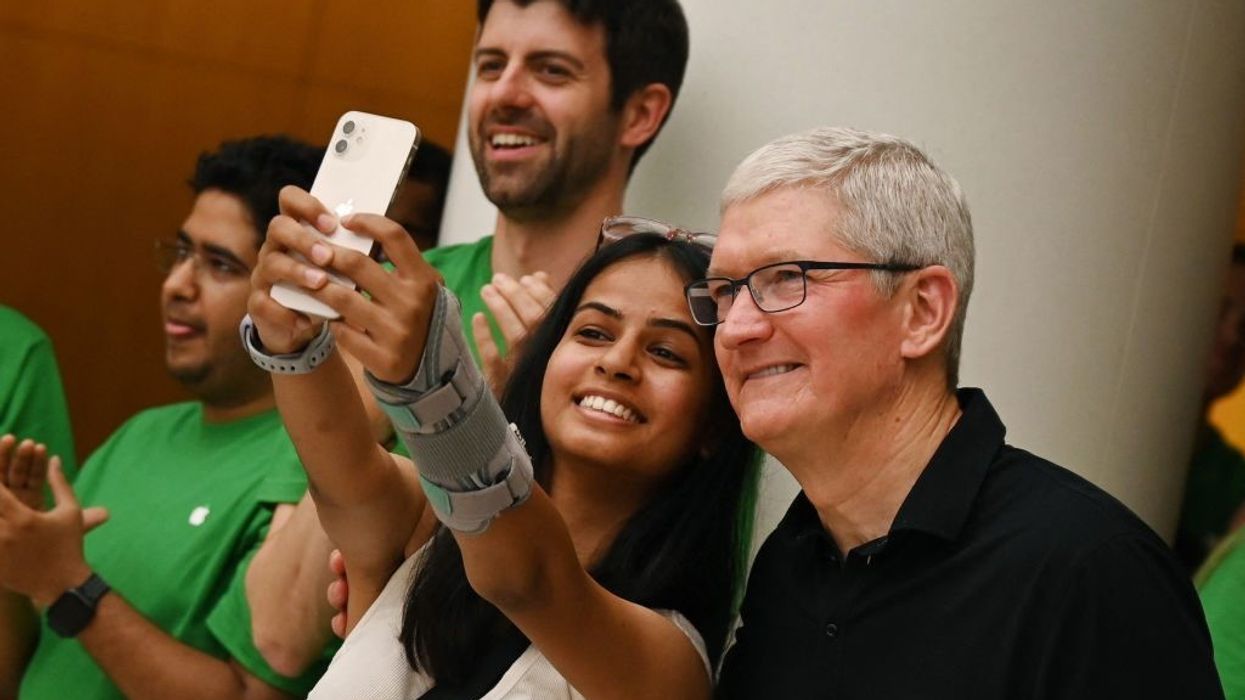Apple Inc chief executive officer Tim Cook has committed to growth and investment across India in meeting with the country's prime minister Narendra Modi in New Delhi.
Cook is on a visit to India this week and inaugurated the iPhone maker's first retail store in the country on Tuesday (18) in Mumbai, followed by another in New Delhi on Thursday (20).
"We share your vision of the positive impact technology can make on India's future — from education and developers to manufacturing and the environment, we're committed to growing and investing across the country," Cook wrote on Twitter and shared a picture of him shaking hands with Modi on Wednesday (19).
In response, the Indian PM tweeted that it was an "absolute delight" to meet Cook.
"Glad to exchange views on diverse topics and highlight the tech-powered transformations taking place in India," Modi said.
Cook is understood to have urged the government to ensure continuation of policy stability.
Rajeev Chandrasekhar, the deputy minister for information technology, said Apple could double or triple investments in India, along with exports, over the next few years.
Apple mainly assembles iPhones in India through Taiwan contract manufacturers but plans to expand into iPads and AirPods, as it looks to cut reliance on China.
Its iPhones made up more than half of total smartphones worth about $9 billion exported from India between April 2022 and February, data from the India Cellular and Electronics Association shows.
"I am very confident that this Apple-India partnership has a lot of headroom for investments, growth, exports and jobs - doubling and tripling over coming years," Chandrasekhar, said.
Cook's visit has drawn extensive media coverage and he has been feted like a Bollywood star, with some people trying to touch his feet in a traditional gesture of respect, while others asked for his autograph.
"We've come here only to see Tim Cook," said Manika Mehta, 32, an Android phone user who queued at the Delhi store.
About 500 people had gathered for Cook's brief appearance, in which he spoke with fans and took selfies, as in Mumbai.
"My heart was skipping a beat," said Reeti Sahai, 45, after taking a selfie. "I'm an Apple addict. I'm drawn to Tim Cook, seeing the man he is and the journey."
Apple has previously faced hurdles in opening physical retail stores in the South Asian nation, but its products have been available on e-commerce websites, while its online store opened in 2020.
The new stores open as Indian consumers increasingly look to upgrade devices to glitzier models with richer feature sets, from budget versions that typically cost less than $120.
Still, Apple's pricey phones are affordable for only a few in India, where it has a market share of just three per cent.
Apple has been trying to make India a bigger manufacturing base. Its products, including iPhones, are being assembled in India by contract electronics makers Foxconn, Wistron Corp and Pegatron Corp.
In January, India's trade minister said Apple wanted the country to account for up to 25 per cent of its production versus about 5-7 per cent now.
(Reuters)




